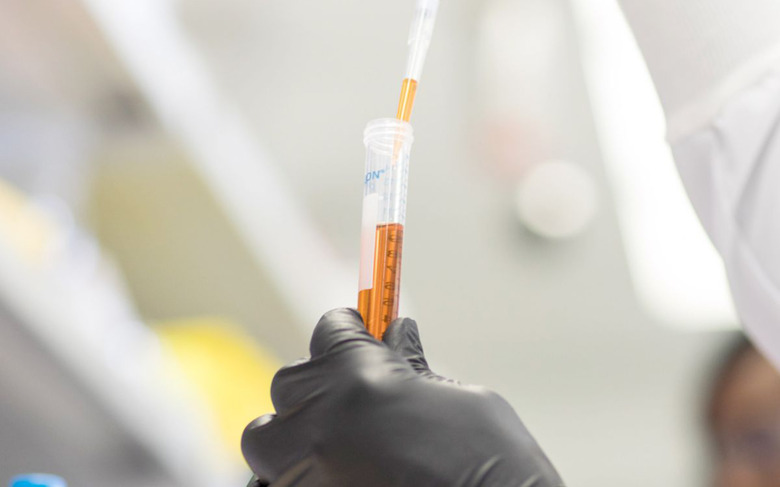COVID-19 Vaccine Boosters Officially Recommended: Who, When And Why
Booster shots of the COVID-19 vaccine will be available for everyone in the US from September, President Biden announced today, with the third injection intended to counter fading protection in the face of new coronavirus variants like Delta. Word of the plan broke earlier this week, with the White House confirming its ongoing pandemic strategy in an address by Biden this morning.
Why COVID-19 boosters are needed
Although the vaccines currently deployed – including Pfizer-BioNTech, Moderna, and Johnson & Johnson drugs in the US – have shown impressive results in providing immunity to the most serious effects of COVID-19, their efficacy doesn't last forever. Much in the same way that people require yearly flu shots in order to handle different variants on the influenza virus, so early predictions suggested the same would be the case for coronavirus.
What was unclear was just how soon that booster might be needed, a timeline that has been heavily impacted by more virulent strains of COVID-19 like Delta. Rushing to the top of the most-prevalent chart for variants of the coronavirus, Delta is a later mutation but has become the most widespread encountered now. That's believed to be, in no small part, because vaccination hold-outs have allowed the variant to take hold in communities around the US and across the world.
Data on just what the long-term protections of the various vaccines in use might be is still being collected and analyzed. Similarly, it's unclear just how quickly immunization might fade, and what degree of insulation from serious COVID-19 cases – generally considered to be those that lead to hospitalization, ventilation, and/or death – could be guaranteed from the first vaccine series.
"The available data make very clear that protection against SARS-CoV-2 infection begins to decrease over time following the initial doses of vaccination, and in association with the dominance of the Delta variant, we are starting to see evidence of reduced protection against mild and moderate disease," HHS public health and medical experts including Dr. Rochelle Walensky, Director of the Centers for Disease Control and Prevention, Dr. Janet Woodcock, Acting Commissioner, Food and Drug Administration (FDA), and Dr. Anthony Fauci, Chief Medical Advisor to President Joe Biden and Director of the National Institute of Allergy and Infectious Diseases (NIAID) said in a statement today. "Based on our latest assessment, the current protection against severe disease, hospitalization, and death could diminish in the months ahead, especially among those who are at higher risk or were vaccinated during the earlier phases of the vaccination rollout."
Amid ongoing reluctance from some quarters to accept vaccination – particularly while the drugs are still not fully FDA approved, instead only authorized under emergency protocols, though that's expected to change in the coming months – boosters are the next step forward to try to contain COVID-19 variants and their spread. Currently, according to the CDC, almost 51-percent of the total US population are considered fully vaccinated.

Complicating matters is the fact that, currently, only those aged 12 years and above are eligible for vaccination. With schools resuming in-person classes, that has already led to outbreaks of infection around the US.
The COVID-19 vaccines that will offer boosters
Initially, those who are fully vaccinated with the Pfizer-BioNTech and Moderna drugs will be offered a third, booster shot. A person is considered "fully vaccinated" two weeks after their second shot of the two-dose vaccines.
The third, booster dose should be administered eight months after that second dose, the White House confirmed today. That exact timing will require an update from the FDA on the emergency use authorization, and the CDC will need to change its recommendation for the drugs.
The Johnson & Johnson (J&J) single-shot vaccine is still being examined, with experts looking at the recent data on the drug. After that's been concluded, guidance on whether those who received that vaccine should get a booster shot, and when, will be issued.
"We also anticipate booster shots will likely be needed for people who received the Johnson & Johnson (J&J) vaccine," the HHS experts said. "Administration of the J&J vaccine did not begin in the U.S. until March 2021, and we expect more data on J&J in the next few weeks. With those data in hand, we will keep the public informed with a timely plan for J&J booster shots as well."
Who gets COVID-19 boosters first?
The CDC and FDA had already announced that some portions of the US population should seek out a booster shot. Earlier this month, new guidance covering immunocompromised people was issued. That covered around 3-percent of US adults.

Those within that group may have have received organ or stem cell transplants, have advanced or untreated HIV infection, be actively undertaking treatment for cancer, or be on medications which cause weakening of the immune system, among other reasons. The advice was that they should have the third dose of the Pfizer or Moderna vaccines at least four weeks after they'd received the second dose of their original vaccine series.
Now, with the expansion of booster doses, those who were first in line for the original vaccine rollout will be top of the list for their third shot. That includes healthcare workers, using home residents, and others considered to be in high-risk settings. If all goes to plan, they'll be offered the extra shot from the week of September 20th, 2021.
Beyond that, the roadmap for booster shots will depend in large part on when people received their initial injections. The eight month delta between the final shot of that process, and the booster being implemented, means the expansion of vaccinations will extend into 2022.
